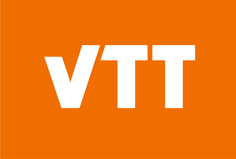Jan. 23, 2025 /Mpelembe Media/ — A Finnish research project, part of the European ITEA PROFIT initiative, explores using artificial intelligence to alleviate the workload of nurses. The project aims to develop AI tools for tasks like patient registration and information review, freeing up nurses for direct patient care. Researchers are collaborating with universities, healthcare providers, and technology companies to create user-friendly and ethically sound AI solutions. Data acquisition for training the AI presents a significant challenge, requiring careful consideration of privacy and legal compliance. The project’s success hinges on addressing ethical concerns and ensuring the technology is accepted by both nurses and patients.
Several challenges hinder the adoption of AI in healthcare, and various solutions are being explored to address them.
One significant challenge is the difficulty of obtaining the necessary data to train AI solutions. Healthcare involves complex professional terminology, requiring comprehensive material such as anonymised speech data, patient data, and other healthcare documentation to train a truly useful conversational AI. While much health data is already digitised, securing it for research and product development has been complicated by legal restrictions.
Another challenge is the lack of involvement of nursing professionals in technology development, leading to systems that may not fully support nursing work or be easily usable. Additionally, there is a scarcity of research evidence on the impact of different AI solutions on the operation of healthcare organisations.
To overcome these challenges, the following solutions are being explored:
Developing technical solutions and operating methods that would enable data use in accordance with the law. The PROFIT project is focusing on this aspect, aiming to facilitate the secure use of anonymised and consent-based data, which could ultimately benefit all parties.
Adopting a nurse-centric approach to technology development, which involves bringing the technology to nursing students for testing to ensure end-user acceptability and prevent it from being perceived as a threat or clumsy in terms of usability. This approach aims to promote the development of AI tools that are genuinely helpful and user-friendly for nurses.
Training AI solutions using data from nursing students’ practice tasks and simulated data in the project’s initial phase.
Addressing ethical issues by ensuring that decision-making and responsibility remain with professionals, even when AI is used. For example, AI could provide entry suggestions, but professionals would have the final approval. The project examines the acceptability and ethics of AI-assisted solutions from the perspectives of both nurses and customers.
By addressing these challenges and implementing these solutions, the project aims to develop AI tools that can reduce nurses’ workload, improve patient care, and enhance the efficiency of healthcare operations.
According to the German consultancy TLGG, if artificial intelligence is utilised properly, it could potentially save more than 30% of nurses’ working hours. This time could then be used for more valuable tasks, such as interacting with patients and providing care.
The project will ensure AI’s acceptability through a nurse-centric approach to technology development. This approach involves bringing the developed technology to nursing students for testing. This will enable the project to learn how to develop AI in a way that promotes end-user acceptability of new technology and prevents it from being perceived as a threat or clumsy in terms of usability. The project is also examining the acceptability and ethics of AI-assisted solutions from the perspectives of both nurses and customers.
The project recognises that a traditional problem in the healthcare sector has been the lack of involvement of nursing professionals in technology development. As a result, the functionality or usability of systems does not always support nursing work. To address this, the project is placing nurse-centricity at the core of its work.
Furthermore, the project is also addressing ethical concerns by ensuring that decision-making and responsibility remain with professionals. For instance, AI will not be able to make direct entries in patient or customer records without the professional’s separate approval. Instead, AI will make an entry suggestion that the professional can either accept as is or with modifications.
In summary, the project will ensure AI’s acceptability by:
- Taking a nurse-centric approach to development
- Testing the developed technology with nursing students
- Addressing ethical concerns and ensuring that professionals retain decision-making power
- Examining the acceptability of AI-assisted solutions from the perspectives of both nurses and customers
Several Finnish organisations are participating in the PROFIT project. These include:
- VTT Technical Research Centre of Finland
- Turku University of Applied Sciences
- The University of Eastern Finland
- The Northern Savo and Southwest Finland wellbeing services counties
- Mediconsult
- Oiva Health
- Solita
These organisations are collaborating on the PROFIT project to develop AI solutions to support nurses and improve healthcare. The project is part of a European consortium of companies and research organisations promoting software innovation and digital transition.
The press release is available here

